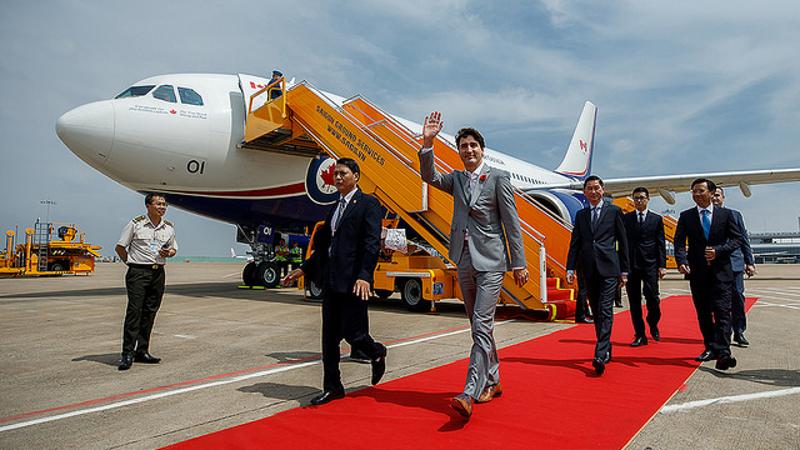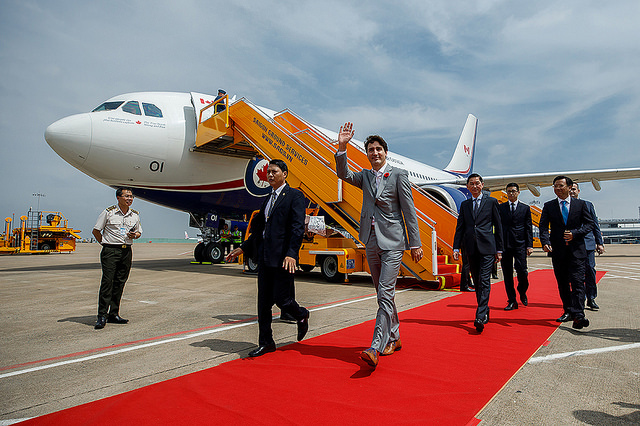
Leading law academic Professor Matthew Rimmer says the weekend trade talks involving Pacific Rim countries highlighted the key divisions and differences between the remaining 11 nations, after the departure of the United States under President Donald Trump.
In the margins of the APEC meetings in Da Nang, Vietnam, the trade ministers from Australia, Brunei Darussalam, Canada, Chile, Japan, Malaysia, Mexico, New Zealand, Peru, Singapore and Vietnam announced an agreement for a new Trans-Pacific free-trade deal.
Professor Rimmer, from QUT's Faculty of Law, says the Comprehensive and Progressive Agreement for the Trans-Pacific Partnership (CPTPP) is a misleading name for the new agreement.
"It is not comprehensive, progressive or even truly Trans-Pacific." Professor Rimmer said.
"Moreover, the nature and substance of the agreement has been transformed - with the change in the composition of the membership."
Professor Rimmer said there was secrecy around the Trans-Pacific Partnership that led to media confusion about the agreement, with media organisations prematurely announcing the deal had been finalised.
"It would seem there remain significant outstanding differences in terms of process and substance between the 11 remaining countries," he said.
"A number of nations such as Japan and Australia blamed Canada for the failure to conclude talks over the Trans-Pacific Partnership in Vietnam.
"However, a close analysis of the negotiations reveals that Canada had a clear a diplomatic strategy in the geopolitics of the recent talks.

"The astute Canadian Prime Minister Justin Trudeau relied upon Mexico to counteract the influence of Japan and China. He also sought to send a signal to President Donald Trump that he would be no pushover in the negotiations over the North American Free Trade Agreement."
Professor Matthew Rimmer observed the substance of the Trans-Pacific Partnership had changed as a result of the latest negotiations.
"As a result of its powerplay, Canada was able extract significant concessions on intellectual property, investor-state dispute settlement, cultural exceptions, and the auto sector," he said.
"There has also been scope for revisions in respect of the text on the environment and labor rights."
Professor Matthew Rimmer noted Prime Minister Jacinda Ardern's New Zealand Government had tested the waters to see whether the revised agreement was amenable to the New Zealand Government amid concern over the impact of the Trans-Pacific Partnership on Indigenous rights and the Treaty of Waitangi.
Professor Matthew Rimmer said Australia needed to improve its negotiating strategy in the Trans-Pacific Partnership.
"Given Justin Trudeau's long-standing ambivalence about the agreement, Australia's negotiators should not have been blind-sided by Canada's tactics," he said.
"As recommended by the Productivity Commission, Australia also needs to reform its treaty-making process. There needs to be greater transparency, accountability, and public participation in trade negotiations.
"Moreover, Australia needs to engage in comprehensive, independent economic and social analysis of trade agreements to both inform its negotiations, and evaluate its performance."
Professor Rimmer is available for interview. Also available via twitter @DrRimmer
Media contacts:
Debra Nowland, QUT Media, 07 3138 1150 (Mon/Wed/Thurs) or media@qut.edu.au
After hours: Rose Trapnell, 0407 585 901
QUT is part of a national collaborative group of five major Australian universities that form the ATN (Australian Technology Network of Universities).




